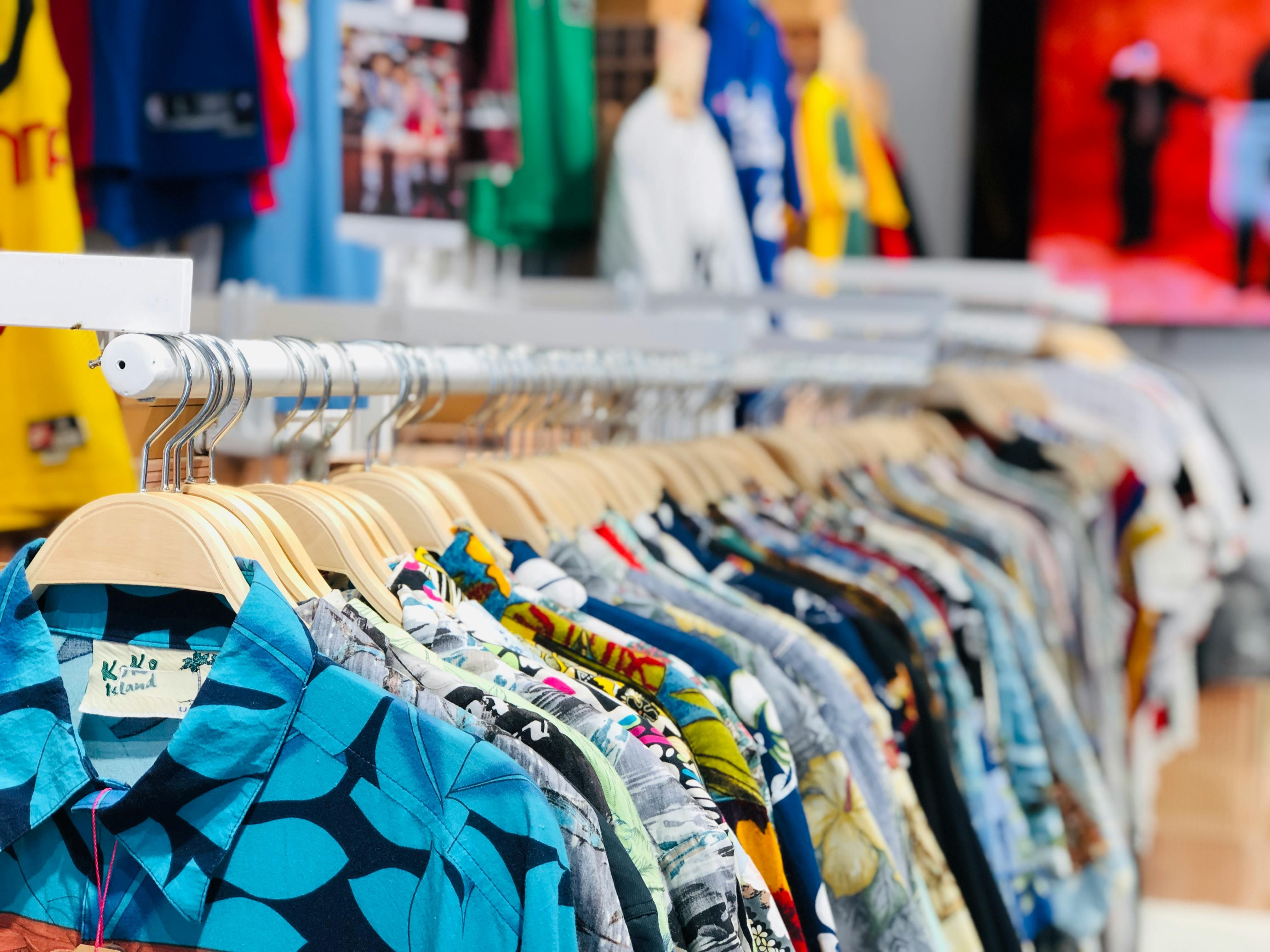What Makes the Best ERP for Retail? A Guide to Customization and Flexibility
In the fast-paced retail world, the ability to adapt quickly to changing consumer preferences, market conditions, and business growth is enormous.
Today's retailers face increasing pressure to manage more than traditional in-store operations, from e-commerce platforms and omnichannel strategies to complex supply chain issues. To meet these demands, businesses need technology that's powerful, flexible, and customizable. This is where finding the best ERP for retail comes into play.
A one-size-fits-all ERP solution might be good for some industries, but retail isn't one of them — a more tailored approach is typically the way to go. Flexibility and customization can make a massive difference, allowing retailers to shape their ERP systems according to their needs.
In this blog, we'll explain why these features are critical for retailers — and how you can evaluate ERP systems to find the best fit for your business.
Why flexibility is critical — especially in retail
The retail industry is anything but static; trends shift, consumer behavior changes, and what worked last year might not work tomorrow. With all of this variability, the ability to adapt is paramount.
Retail is a diverse industry that includes everything from small boutiques to large multinational chains, with smaller subcategories like fashion, electronics, and groceries. The operational needs of a small luxury brand, for example, are vastly different from those of a discount department store. An ERP system that forces businesses into rigid workflows or preset configurations may limit their ability to grow or pivot when needed.
In recent years, retailers have had to adapt to the rise of e-commerce, the growth of direct-to-consumer brands, and the expansion of omnichannel strategies that integrate both online and offline operations. These trends require ERP systems that can handle complex inventory management, support multiple sales channels, and integrate with third-party tools like customer relationship management (CRM) and marketing automation software.
Growth is another significant challenge for retailers. As businesses scale — adding new stores, expanding into new markets, or launching new product lines — their operational needs become more complex. A flexible ERP system can grow alongside the business, allowing retailers to add or modify functionalities without overhauling their entire system. This level of adaptability makes ERP flexibility a critical factor for long-term business success.
4 customization features to look for in a retail ERP
When it comes to customization, not all ERP systems are created equal. To make sure your business gets the most out of its ERP investment, look for these features that improve customization and flexibility.
- Modular design. This is one of the most valuable aspects of owning a flexible ERP system. Modular systems allow retailers to pick and choose their desired features, adding modules like inventory management, CRM, financials, or point-of-sale (POS) integration as their business requires. This means you only pay for what you use, and you can expand or refine your system over time.
- Configurable dashboards. Retailers need access to real-time insights, and configurable dashboards make it easier to monitor the metrics that matter most to your business. Whether you want to track sales performance, inventory levels, or customer behavior, a customizable dashboard allows each department or user to view the most relevant data to their role.
- Custom workflows. Every retailer has unique operational processes, and an ERP system that supports custom workflows can significantly increase efficiency. Custom workflows allow businesses to set up automated processes for tasks like order fulfillment, restocking, or customer service management. And by aligning these workflows with your specific needs, you can reduce errors, speed up operations, and improve overall productivity.
- Third-party integrations. Retailers rely on a wide range of software tools, from e-commerce platforms like Shopify to marketing automation tools like HubSpot. To create a unified system that works across all parts of your business, your ERP system needs to integrate seamlessly with these third-party tools. A flexible ERP will offer robust integration capabilities, ensuring all your systems communicate effectively and share critical data.
Benefits of a highly customizable retail ERP
Choosing an ERP system with solid customization capabilities can bring numerous benefits to retailers:
- Enhanced efficiency. Customization allows retailers to fine-tune their operations, eliminating unnecessary steps and reducing manual intervention. This can lead to more efficient processes across inventory management, order processing, and customer service. For instance, a retailer that sets up custom workflows for restocking based on real-time sales data can avoid stockouts and ensure that high-demand products are always available.
- Scalability. As your business grows, so will your operational needs. A customizable ERP system allows you to scale your operations without needing to switch to a new platform. Whether you’re opening new stores, expanding into new product categories, or launching new sales channels, a flexible ERP will grow alongside your business, allowing you to add new modules or capabilities as needed.
- Improved decision-making. With a customizable ERP system, you can generate reports and insights tailored to your business goals. Whether you're tracking sales performance, customer loyalty, or supply chain efficiency, having access to the right data at the right time will help you make informed decisions that drive profitability and growth.
Challenges of customizing ERP for retail
While customization offers many benefits, it also comes with challenges that retailers need to consider.
- Cost implications. Customizing an ERP system often comes with higher upfront costs. Configuring the system to your specific needs, integrating it with other software, and training your team on its use can be more expensive than opting for an out-of-the-box solution. Be sure to weigh the long-term benefits of customization against these initial costs to ensure the investment pays off.
- Complexity. Too much customization can backfire on occasion. Over-customizing an ERP system can create unnecessary complexity, making it harder to manage and maintain. This could lead to inefficiencies and potentially reduce the benefits of automation. That's why it's essential to strike a balance between tailoring the system to your needs and keeping it user-friendly.
- Vendor lock-in. Heavy customization can sometimes create a dependency on specific vendors. If the vendor’s system is deeply integrated into your business, switching to a new ERP provider could become costly and disruptive. Carefully evaluate a vendor's customization options to ensure you maintain enough flexibility to switch vendors if needed.
Real-world examples of customizable retail ERP systems

Let’s take a look at a couple of real-world examples of retailers using highly customizable ERP systems to their advantage.
Case Study 1: Omnichannel success with a modular ERP system
A mid-sized fashion retailer struggled to manage inventory across both online and physical stores. However, by implementing a modular ERP system with built-in omnichannel capabilities, they were able to synchronize their inventory in real time, ensuring that products were always available to customers regardless of the channel they shopped through. Custom workflows also helped streamline fulfillment, cutting order processing times in half.
Case Study 2: Scalable growth in a global market
A small electronics retailer expanded into international markets and needed an ERP system that could handle complex logistics, multiple currencies, and different tax regulations. Using a customizable ERP, they configured the system to meet the specific legal and financial requirements of each country they operated in. The flexibility of the ERP allowed them to expand smoothly without needing to overhaul their entire operation.
How to assess an ERP's customization capabilities
When evaluating ERP platforms for customization, it's important to know what to look for and how to assess the system’s flexibility.
- Vendor conversations. During vendor demos, ask specific questions about customization options. Request examples of how the ERP has been customized for other retail businesses similar to yours and find out what the customization process looks like.
- Trial periods. Take advantage of free trials or demo environments offered by vendors. Use this time to explore customization options, test out modules, and experiment with creating custom reports and workflows. This hands-on experience will give you a better sense of the system’s flexibility and whether it meets your needs.
- Industry fit. Some ERP systems are better suited to specific retail segments than others. For example, certain systems may be optimized for fashion retail, while others are better for grocery stores. Make sure the ERP system you choose has a proven track record in your specific niche.
Tailor: Taking retail ERP into a more flexible future
As businesses grow and the retail landscape continues to evolve, having an ERP solution that can adapt to your unique needs will position your business for long-term success. In other words, customization and flexibility are no longer just added perks — they're essential components of a successful ERP system for retail.
That's why Tailor's headless ERP technology allows you to build and integrate the exact features your business requires — without being locked into a rigid system. With a uniquely modular design, custom workflows, and real-time data insights, Tailor will equip your business with the tools it needs to succeed today and into the future.
Ready to see how Tailor's one-of-a-kind, highly customizable design can help your retail business thrive?
Book your demo today.
Quick Answers and Frequently Asked Questions (FAQ)
What are the 3 common types of ERP?
ERP systems have three main forms, each with unique benefits:
-
On-premise ERP is installed on a company's hardware, providing control but needing in-house management.
-
Cloud-based ERP is hosted on the vendor's servers, offering remote access and lower hardware maintenance.
-
Hybrid ERP combines on-premise and cloud features, allowing businesses to use both private and public cloud services.
Tailor's ERP solutions help businesses with flexible, scalable, and customized setups that integrate smoothly with existing systems, boosting efficiency and growth.
Is QuickBooks an ERP system?
QuickBooks is mainly an accounting tool, but it can work as a basic ERP option for small to medium businesses when it connects with third-party apps. Still, it lacks the full features of a true ERP system, which usually covers supply chain management and human resources.
For a stronger solution, Tailor offers a customizable ERP system that integrates with existing tools, helping businesses scale and improve operations.





